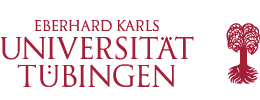Research Seminar "Machine Learning Theory"
This is the research seminar by Ulrike's group.When and where
Each tuesday 13:00 - 14:00, Big glassroom on level 4, Maria-von-Lindenstrasse 1 (the new building!).What
Most sessions take place in form of a reading group: everybody reads the assigned paper before the meeting. Then we jointly discuss the paper in the meeting. Sometimes we also have talks by guests or members of the group.Who
PhD students and researchers of the University of Tübingen. We do not mind people dropping in and out depending on whether they find the current session interesting or not.Upcoming meetings
- 24.2.2026 Mario Krenn pitches a project idea
- 3.3.2026
- 10.3.2026
- 17.3.2026
- 24.3.2026 no reading group
- 31.3.2026
- 7.4.2026
- 14.4.2026
- 21.4.2026
- 28.4.2026
Past meetings
Listed here.Suggested papers for future meetings
Feel free to make suggestions!If you do, please (i) try to select short conference papers rather than 40-page-journal papers; (ii) please put your name when entering suggestions; it does not mean that you need to present it, but then we can judge where it comes from; (iii) Please provide a link, not just a title.
- Formal mechanistic interpretability: automated circuit discovery with provable guarantees, Itamar Hadad, Guy Katz, Shahaf Bassan, ICLR 2026.
- (Ulrike) The Computational Complexity of Circuit Discovery for Inner Interpretability, ICLR 2025, Federico Adolfi, Martina Vilas, Todd Wareham.
- Training on the Test Task Confounds Evaluation and Emergence. ICML 2025
- (Ulrike) Classical Statistical (In-Sample) Intuitions Don't Generalize Well: A Note on Bias-Variance Tradeoffs, Overfitting and Moving from Fixed to Random Designs Alicia Curth. arxiv
- The Illusion of Thinking: Understanding the Strengths and Limitations of Reasoning Models via the Lens of Problem Complexity. Jul 2025. pdf
- Ulrike:What makes an Ensemble (Un) Interpretable? ICML 2025. https://arxiv.org/pdf/2506.08216v1
- Everything, Everywhere, All at Once: Is Mechanistic Interpretability Identifiable?, ICLR 2025, link (Gunnar)
- Circuit Tracing: Revealing Computational Graphs in Language Models, link (Gunnar)
- How to Probe: Simple Yet Effective Techniques for Improving Post-Hoc Explanations, ICLR 2025, link (Gunnar)
- We should read up on mechanistic interpretability. Suggestions? I vaguely remember somebody mentioning a good paper. Here is one recent iclr paper: link
- (Sebastian) How Do Transformers Learn Variable Binding in Symbolic Programs? ICML 2025
- Chain of Log-Concave Markov Chains, Saeed Saremi, Ji Won Park, Francis Bach, 2024 pdf (ulrike)
- The Value of Prediction in Identifying the Worst-Off, Unai Fischer-Abaigar, Christoph Kern, Juan Perdomo, ICML 2025 (Outstanding Paper) pdf (Gunnar)
- link

